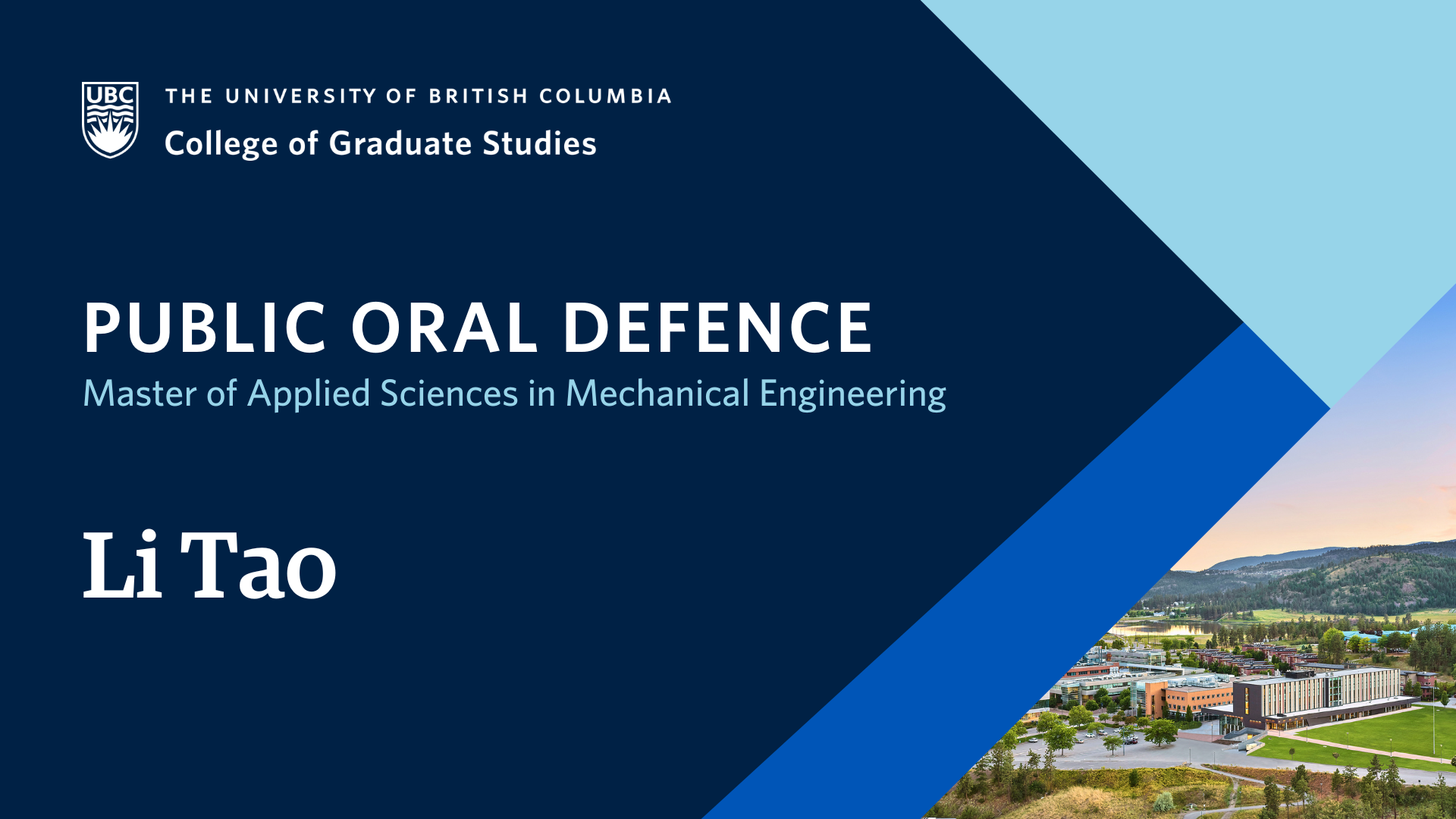
- This event has passed.
Thesis Defence: Synthesis and Characterizations of Antimicrobial Coating by Atomic Layer Deposition Technique for Personal Protective Equipment Applications
December 12, 2022 at 10:00 am - 1:00 pm

Li Tao, supervised by Dr. Jian Liu, will defend their thesis titled “Synthesis and Characterizations of Antimicrobial Coating by Atomic Layer Deposition Technique for Personal Protective Equipment Applications” in partial fulfillment of the requirements for the degree of Master of Applied Science in Mechanical Engineering.
An abstract for Li’s thesis is included below.
Defences are open to all members of the campus community as well as the general public.
If you would like to attend this virtual defence please contact the supervisor at jliu13@mail.ubc.ca to receive a zoom link.
ABSTRACT
The global pandemic caused by COVID-19 has led to significant demand for Personal Protective Equipment (PPE), such as masks, gloves, and face shields. While these PPEs can protect people from airborne infectious agents, they usually are one-time use and non-degradable after disposal, causing a shortage of PPE at the start of the pandemic and environmental issues. While many reusable substitutes, such as reusable cloth masks, were developed, their prevention capability might be compromised, especially after prolonged usage. As such, self-disinfecting coatings have been applied to PPE to enable antibacterial and antiviral properties. However, currently used coating methods, such as spraying, wet chemistry, or physical vapour deposition, have several limitations for PPE applications, including poor surface coverage, loose adhesion, and a complicated coating process.
This thesis work adopted an advanced atomic layer deposition (ALD) technique to fabricate nanoscale self-disinfecting coatings that overcome the above limitations in current coating approaches. This work investigated the ALD fabrication, material characterizations, and antimicrobial performance of titanium oxide (TiO2) and zinc oxide (ZnO), two typical UV-activated self-disinfecting materials. The ALD-deposited TiO2 and ZnO thin films on the glass substrate had a thickness of 81.6 ± 6.6 nm and 312.8 ± 41.3 nm, respectively. Structural analysis by X-ray diffraction, Raman spectroscopy, and X-ray photoelectron microscopy confirmed the successful deposition of TiO2 and ZnO, most of which were amorphous structures. The antimicrobial properties of the ALD-TiO2 and ZnO were evaluated against a common gram-negative bacteria, E. coli, under a modified AATCC-100 standard, with commercial TiO2 and ZnO powders as references. It was found that ALD-ZnO could eliminate E. coli during a 12-hour antimicrobial test. All the data were verified through a P value test with an h alpha set smaller than 0.05 and statistically proved the antimicrobial performance of the ALD-ZnO. Moreover, the nanoscale ALD-ZnO exhibited antimicrobial properties similar to commercial ZnO powders.
On the other hand, after being validated through P-value tests, ALD-TiO2 coating and commercial TiO2 powders did not generate statistically significant data to support any antimicrobial activity toward E. coli. The different antimicrobial properties of ALD-ZnO and TiO2 could be due to the more substantial UV absorption capability of the former than the latter, as revealed by the Ultraviolet-visible spectroscopy analysis. It is expected that this work could stimulate the application of the ALD technique for applying self-disinfecting ZnO coatings for PPE.